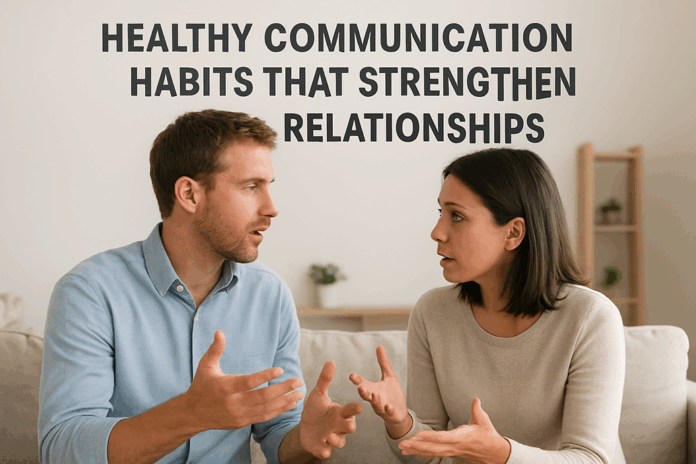At the end of a long day, have you ever stopped to consider what you have to be grateful for today? It sounds easy, almost cliche. However, beneath that query is a transformative force: thankfulness. Indeed, one of the most exciting new areas in social science, psychology, and neuroscience is how thankfulness enhances connection and mental health.
Being grateful does more than just make you feel good right now. It changes the way your brain processes failures, restores emotional equilibrium, fortifies relationships, and builds resilience. This post will reveal the science, anecdotes, and techniques that underlie the mental-health benefits of gratitude and demonstrate how to incorporate it into your life in a way that will truly last.
Here’s the bold answer up front: gratitude acts like a mental and relational fertilizer—helping positive well-being grow and deepening social soil for connection. As a result, it helps reduce depression, anxiety, loneliness, and cultivates joy, empathy, and belonging.
Let’s walk through what gratitude is, why it matters, and how you can make it a sustaining force in your mental and relational life.
“When I remember to be grateful, fear loses its grip.”
What Is Gratitude, Exactly?
Before we dive into benefits, we need a shared definition.
Gratitude as Emotion, Trait, and Practice
Gratitude has multiple dimensions:
- A state or emotion: the immediate feeling of thankfulness when someone offers you a kindness or you notice something positive.
- A trait: a personality-level tendency to notice and appreciate things in life (some people are naturally more gratitude-prone).
- A practice or intervention: structured acts (journaling, expressing thanks, writing letters) to cultivate gratitude consciously.
Robert Emmons, a prominent researcher in gratitude, delineates gratitude as comprising two components: the acknowledgment of the goodness in one’s life and the recognition that the origins of this goodness are, at least in part, external to oneself.
In short: gratitude means noticing, valuing, and often responding with acknowledgment to things or people (or life itself) that enrich you.
The “Find-Remind-Bind” Theory
In relationship science, gratitude is said to play a social bonding role with three mechanisms: find, remind, bind etc.
- Find: gratitude alerts you to people who contribute to your life (i.e. high-quality partners).
- Remind: gratitude reinforces your memory of positive aspects of a relationship.
- Bind: expressing gratitude helps deepen and stabilize your relational connection.
Thus, gratitude is not just a warm feeling—it’s relational glue.
Why Gratitude Matters for Mental Health
Let’s unpack the “improves mental health” piece. The evidence is strong and growing.
1. Reduction in Depression and Anxiety
A robust meta-analysis (64 randomized clinical trials) found that people who engaged in gratitude interventions showed fewer symptoms of depression and anxiety, elevated mood, and overall better mental health compared to control groups.
Other studies that look at gratitude journaling or making lists show that they consistently help with stress, depression, and emotional health.
The act of recalling things you are grateful for helps shift focus away from negative rumination—one of the core processes in anxiety and depression.
2. Enhanced Emotional Regulation & Resilience
Negative feelings are tempered by gratitude. You can develop “positive recall bias,” or the mental habit of seeing the positive even in the face of hardship, by focusing your attention on the positive aspects of life.
When people deliberately adopt grateful appraisal, they have been shown to experience physiological effects like a lowered heart rate, relaxed breathing, and a decrease in stress hormones. This can help to calm the nervous system during stressful situations.
3. Better Sleep, Health, and Somatic Well-being
Mental health is not isolated in your brain. It has deep connections with your body. Research shows that gratitude correlates with:
- Improved sleep quality (people with gratitude thoughts before bedtime tend to fall asleep more easily)
- Lower blood pressure, heart rate regulation, and cardio biomarkers
- Greater physical health and longevity: a new study from the Nurses’ Health Study found that more grateful women lived longer, suggesting gratitude may influence mortality risk factors.
In sum, gratitude is a mind-body catalyst.
4. Increased Life Satisfaction & Subjective Well-Being
People who regularly practice gratitude report higher life satisfaction, positive emotion, optimism, and strength of meaning in life.
Even beyond clinical outcomes, gratitude simply feels good and helps anchor a sense of flourishing.
Gratitude and Connection: How They Interact
Mental health and connection are deeply entwined, and gratitude acts as a bridge.
1. Strengthening Friendships, Romantic Partnerships, and Social Bonds
A wealth of research shows gratitude helps initiate, maintain, and strengthen relationships.
Couples who express gratitude toward each other report greater relationship satisfaction, communication, and closeness.
Friends feel more connected when they receive expressions of thanks and acknowledgment. Gratitude fosters prosocial behavior—people are more likely to help, trust, and invest in others.
2. Reducing Loneliness & Building Social Cohesion
Feeling lonely and not being able to connect with others are both risk factors for mental health problems. Expressing gratitude can help with that by building trust, increasing social support, and making it easier for people to get involved in their communities.
One study on gratitude and loneliness showed that gratitude expression supports relationship satisfaction, forgiveness, and social closeness.
3. Reciprocity, Trust, and Prosocial Feedback Loops
Recipients are frequently inspired to reciprocate with kindness, generosity, or additional connections when someone expresses gratitude. Relational warmth is increased by this positive feedback loop.
Further, gratitude often triggers trust and forgiveness—helps relationships recover from friction.
4. Cultural & Evolutionary Roots of Gratitude in Cooperation
Gratitude likely evolved as a social signal encouraging cooperation, alliance, and group cohesion in our ancestral past. In other words, gratitude is literally wired for connection.
Thus, gratitude is relational glue that helps mental health by reinforcing social ecosystems.
Real-Life Stories & Anecdotes
Here are examples to bring these ideas into real life:
A. The Gratitude Letter That Mended a Relationship
Years of unspoken grievances had caused Maria and Ahmed to drift apart. In her heartfelt letter of gratitude, Maria thanked Ahmed for his patience, acknowledged small gestures of kindness, and recalled times when they had laughed. He was taken aback, moved, and reciprocated. That one action changed their tone, sparked conversation, and brought them closer together again.
B. Journal of Three Blessings After Burnout
“Raj” started a nightly routine after work stress overtook her: writing down three things for which she was thankful that day: a nutritious meal, a supportive partner, or a moment of companionship. She experienced improved mood, richer conversations at home, and less anxiety in a matter of weeks.
C. Gratitude in Community Volunteering
A community center in a city started a “Gratitude Wall” where volunteers pinned notes about people they appreciated. This small act fostered visibility, deepened relationships among neighbors, and reduced social isolation. People reported feeling more connected to each other and to the community.
These are small-scale but powerful glimpses of how gratitude can ripple outward.
Mechanisms: How Exactly Gratitude Works in the Brain & Psyche
Neural Activity: Reward Circuits, Prefrontal Activation
Especially in the medial prefrontal cortex, gratitude activates brain areas linked to reward, value attribution, social cognition, and decision-making.
Gratitude is linked to value-based decision-making because it increases neural sensitivity in the medial prefrontal cortex when people express gratitude in experiments (e.g., financial giving linked to feeling thankful).
Over time, consistent gratitude exercises may rewire these circuits, strengthening constructive emotional processing.
Cognitive Processes: Attention, Memory, Reappraisal
Gratitude shifts attention: it trains your brain to scan for good, not just threats or deficits. This attentional bias becomes a mental habit.
It also influences memory: recalling gratitude experiences strengthens recall of positive events.
It enables reappraisal: when facing adversity, a gratitude perspective helps reinterpret challenges (“What am I still grateful for?”) which supports emotional regulation.
Emotional Dynamics: Building Positive Emotions
Gratitude magnifies positive feelings more than it eliminates negative ones—it doesn’t pretend pain doesn’t exist, but expands your emotional palette.
As positive emotions accumulate, they create upward spirals: more gratitude → more joy → more social investment → more gratitude.
Behavioral Activation & Prosocial Action
When gratitude is felt or expressed, it often leads to behaviors—saying “thank you,” helping others, investing in relationships—that reinforce connection and purpose.
These behaviors, in turn, feed back into mental health and relational well-being.
Barriers, Misconceptions & the “Gratitude Trap”

Gratitude isn’t a cure-all. There are pitfalls and caveats to be aware of.
Toxic Gratitude or “Gratitude Trap”
“You must be grateful” can occasionally be used as a stifling tactic, making people feel guilty, ashamed, or indebted when they are unable to live up to inflated expectations of gratitude. This is referred to as the “gratitude trap.”
Furthermore, thankfulness shouldn’t mask injustice, suppress legitimate rage, or prevent people from establishing boundaries when they experience systemic disadvantages (poverty, abuse, etc.).
Plateau Effects & Habituation
Gratitude’s emotional impact may diminish if it seems monotonous or repetitive. For this reason, specificity and novelty are important. According to certain research, interventions involving gratitude lists that were conducted too infrequently had minimal impact.
Not a Replacement for Therapy
Gratitude is a helpful complement—not a substitute—for clinical care when dealing with severe depression, trauma, or mental illness.
Cultural & Individual Differences
Cultural scripts around gratitude, expression norms, and individual temperament moderate how gratitude is experienced and expressed. Some people may find gratitude awkward or forced initially.
Practical Strategies: Cultivating Gratitude Daily
Here’s how to make gratitude real, sustainable, and relational.
1. Gratitude Journaling / Three Blessings
Every day (or several times/week), write 2–3 things you’re grateful for. Aim for specificity (“My friend listened patiently today”) rather than generic statements.
Meta-analysis evidence supports these practices reducing depression and anxiety.
2. Gratitude Letters & Visits
Write (or deliver) a letter to someone you appreciate. Tell them what they did and how it impacted you.
3. Express Gratitude in Relationships
Make a conscious effort to show gratitude in casual conversations by saying things like “Thank you for doing that” or “I appreciate you.” Regular expressions of gratitude strengthen the bonds between couples.
4. Mindful Gratitude Moments
Pause in daily life (walk, meal, breath) and consciously notice one thing you appreciate.
5. Use Prompts & Apps
Use prompt cards, reminders, or apps to cue gratitude reflection. A recent application design study among young adults confirmed structured prompts improve psychological well-being and social connection.
6. Gratitude Rituals & Shared Practice
Do gratitude check-ins at dinner, meditation practice, or group “gratitude circle” among friends or family.
7. Integrate Gratitude with Acts of Kindness
Actively return gratitude: service, support, generosity. This activates reciprocity and relational growth.
8. Refresh & Vary the Practice
Switch up formats (journals, photos, audio recording, gratitude walks) to keep the practice fresh and emotional.
Example 6-Week Gratitude Plan
| Week | Focus | Practice | Reflection Prompt |
|---|---|---|---|
| 1 | Cultivate noticing | Morning journal: 3 specific gratitudes | “What small thing today surprised me in a good way?” |
| 2 | Express outwardly | Write one gratitude letter this week | “How did writing/expressing feel?” |
| 3 | Pause & savor | Daily 30-second gratitude pauses | “What sensations or feelings arise?” |
| 4 | Relational gratitude | Say “thank you” intentionally to people | “What changed in the interaction?” |
| 5 | Novel gratitude | Notice new gratitudes (people or things) | “What new thing did I overlook before?” |
| 6 | Sustain & integrate | Choose your favorite methods to sustain | “How has this affected my mood, relationships?” |
By week 6, many report sustained uplift, renewed connection, and clearer emotional baseline.
How Gratitude Improves Mental Health and Connection: Summary of Pathways
To recap, gratitude improves mental health and connection by:
- Shifting attention and cognitive bias toward the positive
- Reducing rumination, anxiety, depressive thoughts
- Regulating emotional responses and enhancing resilience
- Activating reward circuits and neural plasticity
- Promoting behaviors of kindness, generosity, trust
- Strengthening relational bonds and social support
- Anchoring life satisfaction, meaning, and belonging
These pathways are interconnected: deeper connection is made possible by gratitude, which in turn supports mental health by enhancing connection.
- According to research, having gratitude improves one’s happiness, health, and general well-being. Additionally, gratitude strengthens existing relationships and aids in forming new ones. — Baylor studies
These underscore both the clinical and relational importance of gratitude.
Common FAQs
Q: How long does it take before gratitude “works”?
A: Studies suggest effects may appear after several weeks (4–8 weeks) of consistent practice. Some immediate lifts in mood can appear too, but long-lasting change often requires habitual repetition.
Q: Is gratitude practice right for someone with major depression or trauma?
A: Gratitude is a complementary tool—not a replacement—for therapy, medication, or professional care. In severe mental health conditions, start slowly and under supervision. Gratitude works best in addition to appropriate treatment.
Q: What if I don’t feel grateful or it’s hard to find things to be thankful for?
A: Begin with small things (a warm drink, sunlight, a kind gesture). Use a prompt to push gently. Over time, gratitude muscles strengthen—even when mood is low.
Q: Can gratitude backfire or become “toxic positivity”?
A: Yes, if it gaslights your negative feelings or demands gratitude when you don’t authentically feel it. Avoid gratitude traps—acknowledge hardship, allow discomfort, don’t force gratitude over denial.
Q: Does gratitude benefit everyone equally (cultures, ages, personality types)?
A: Effects vary. Cultural norms, emotional expressivity, and temperament moderate how gratitude is felt and expressed. The key is adapting practices to your context.
Conclusion & Call to Action
If some of this feels familiar—that journaling, thank-you letters, pausing for one breath—it’s because gratitude is beautifully simple yet deeply powerful. It’s like sunlight for your emotional soil.
How gratitude improves mental health and connection is a gradual, giving development of perspective, connection, and inner strength rather than a quick fix. With time, it fortifies against hopelessness, fortifies relationships, and adds more warmth, empathy, and purpose to your experience.
I invite you: start today. Write one gratitude note, pause to savor something good, tell someone you appreciate them. Repeat tomorrow. You’ll notice patterns changing over the course of weeks: your world is a little brighter, your relationships are stronger, and your mood is more stable.
If you’d like, I can help you develop a 30- or 90-day gratitude challenge customizable to your life. Would you like me to map that out next?




